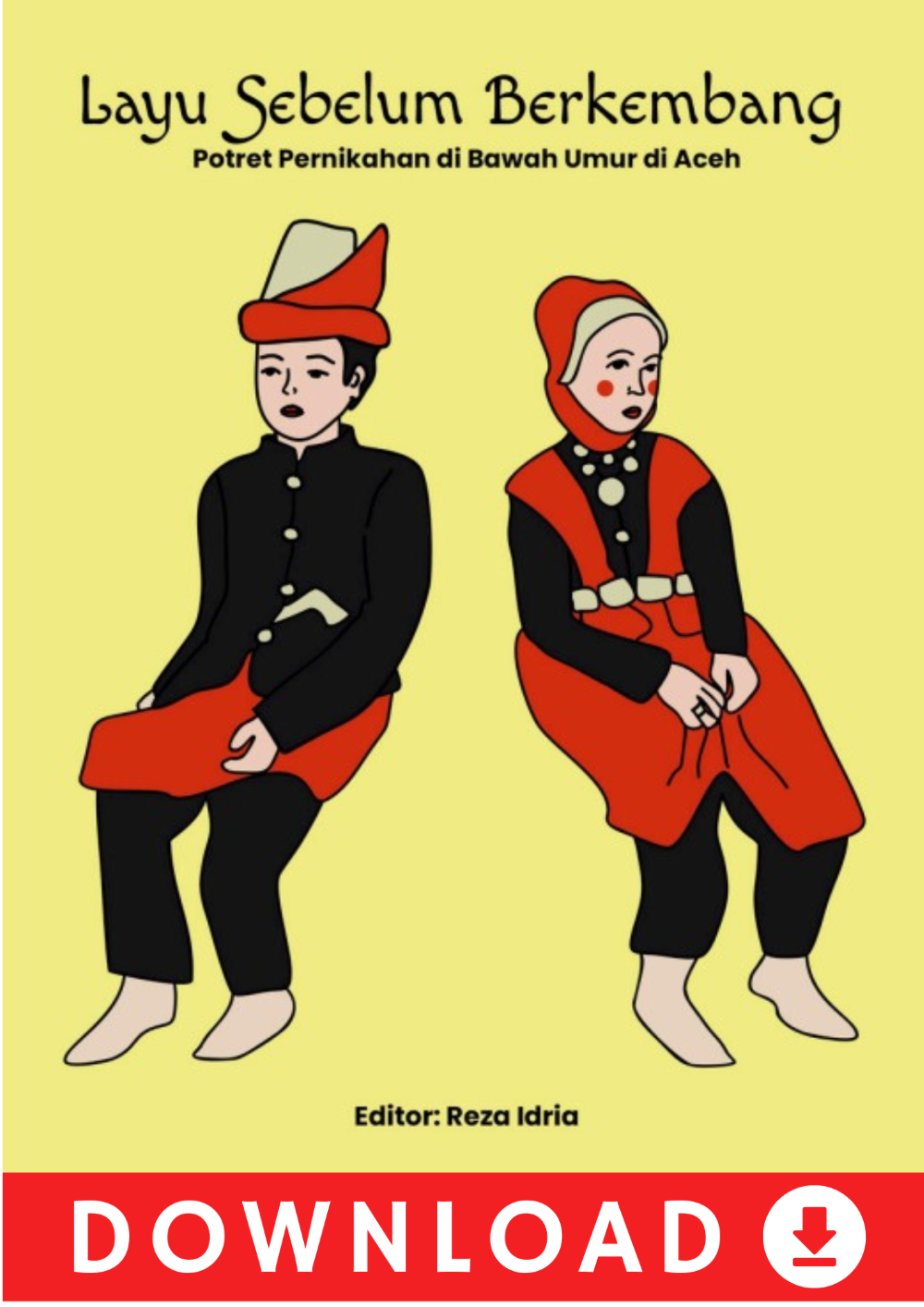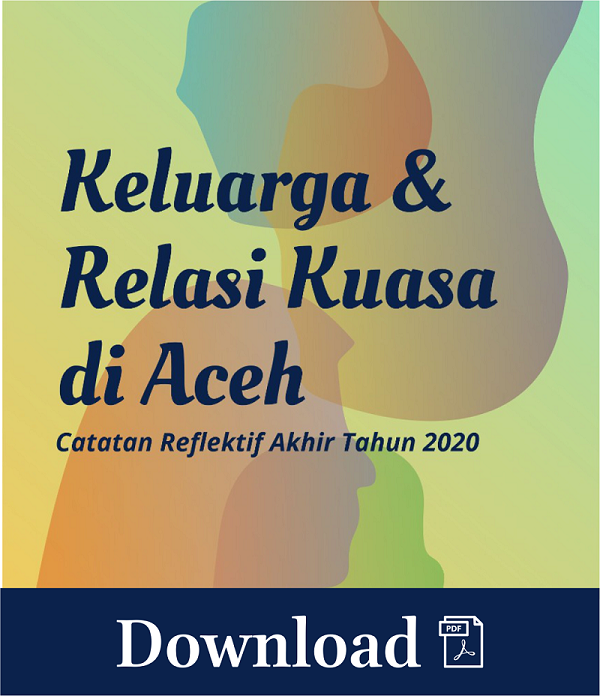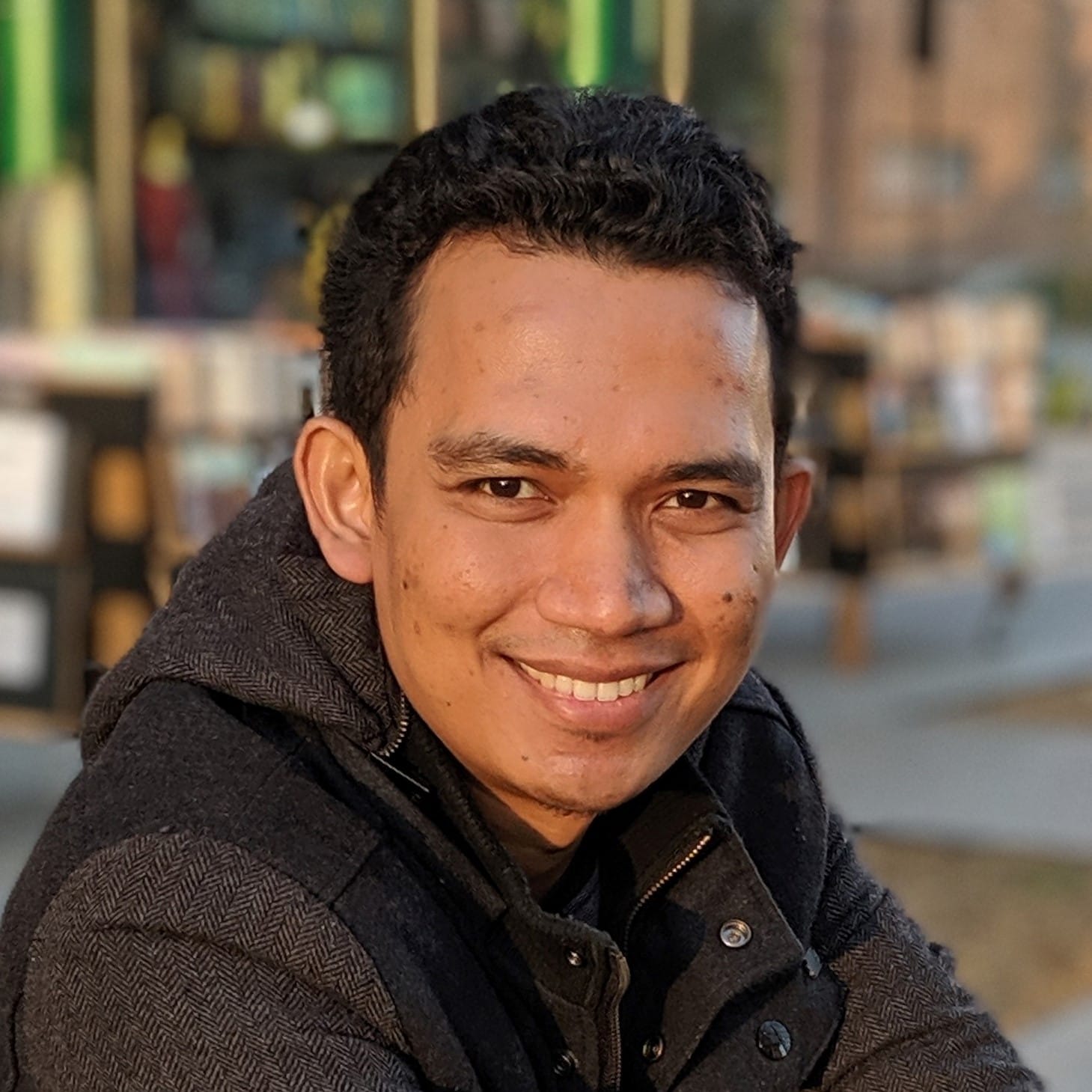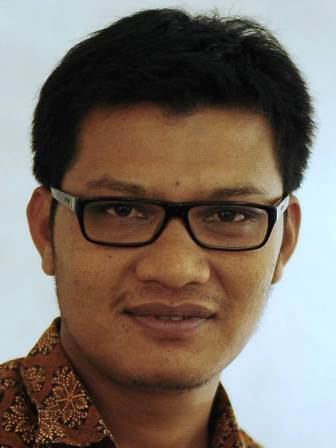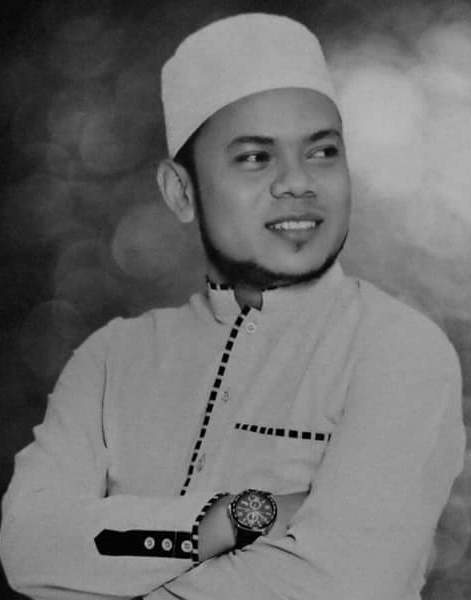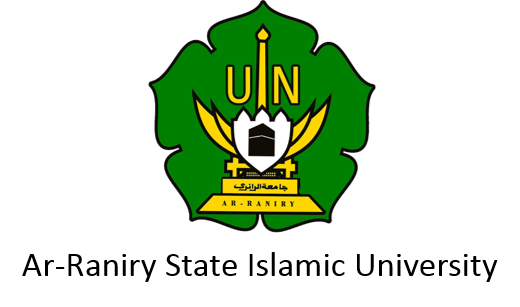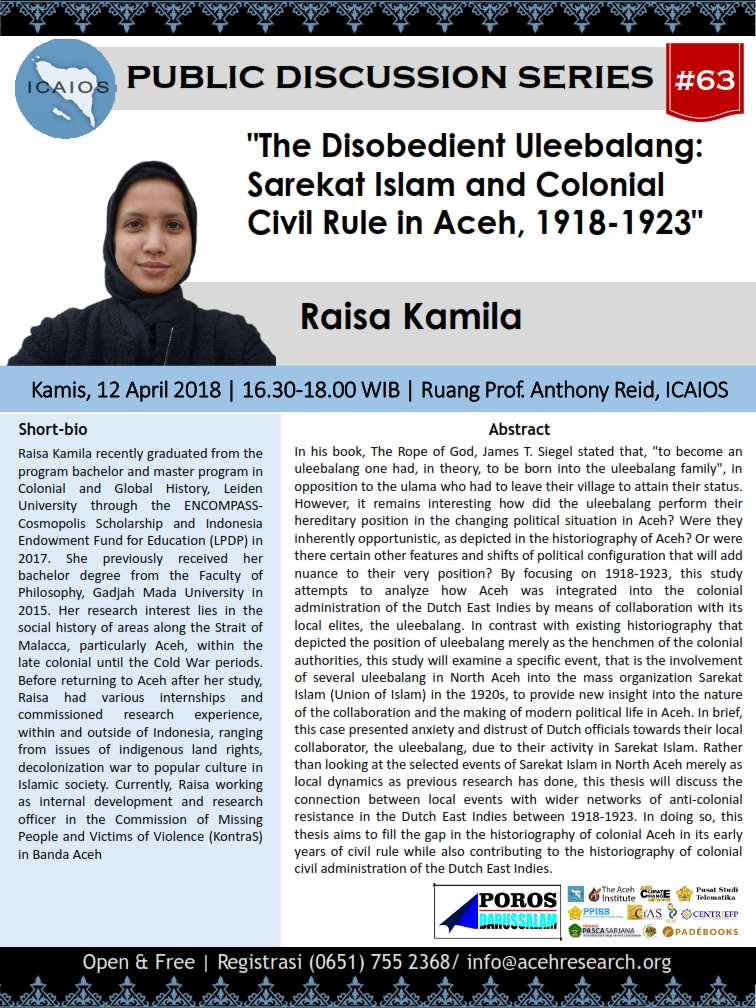
Public Discussion Series
The Disobedient Uleebalang:
Sarekat Islam and Colonial Civil Rule
In Aceh, 1918-1923
Sarekat Islam and Colonial Civil Rule
In Aceh, 1918-1923
Speaker:
Raisa kamila
| Thursday, 12 April 2018 | 16.30 - 18.00 WIB |
| Prof. Anthony Reid Seminar Room, ICAIOS |
| Prof. Anthony Reid Seminar Room, ICAIOS |
About The Speaker:
Raisa Kamila recently graduated from the program bachelor and master program in Colonial and Global History, Leiden University through the ENCOMPASS-Cosmopolis Scholarship and Indonesia Endowment Fund for Education (LPDP) in 2017. She previously received her bachelor degree from the Faculty of Philosophy, Gadjah Mada University in 2015. Her research interest lies in the social history of areas along the Strait of Malacca, particularly Aceh, within the late colonial until the Cold War periods. Before returning to Aceh after her study, Raisa had various internships and commissioned research experience, within and outside of Indonesia, ranging from issues of indigenous land rights, decolonization war to popular culture in Islamic society. Currently, Raisa working as internal development and research officer in the Commission of Missing People and Victims of Violence (KontraS) in Banda Aceh.
About PDS:
In his book, The Rope of God, James T. Siegel stated that, "to become an uleebalang one had, in theory, to be born into the uleebalang family", in opposition to the ulama who had to leave their village to attain their status. However, it remains interesting how did the uleebalang perform their hereditary position in the changing political situation in Aceh? Were they inherently opportunistic, as depicted in the historiography of Aceh? Or were there certain other features and shifts of political configuration that will add nuance to their very position? By focusing on 1918-1923, this study attempts to analyze how Aceh was integrated into the colonial administration of the Dutch East Indies by means of collaboration with its local elites, the uleebalang. In contrast with existing historiography that depicted the position of uleebalang merely as the henchmen of the colonial authorities, this study will examine a specific event, that is the involvement of several uleebalang in North Aceh into the mass organization Sarekat Islam (Union of Islam) in the 1920s, to provide new insight into the nature of the collaboration and the making of modern political life in Aceh. In brief, this case presented anxiety and distrust of Dutch officials towards their local collaborator, the uleebalang, due to their activity in Sarekat Islam. Rather than looking at the selected events of Sarekat Islam in North Aceh merely as local dynamics as previous research has done, this thesis will discuss the connection between local events with wider networks of anti-colonial resistance in the Dutch East Indies between 1918-1923. In doing so, this thesis aims to fill the gap in the historiography of colonial Aceh in its early years of civil rule while also contributing to the historiography of colonial civil administration of the Dutch East Indies.
Raisa Kamila recently graduated from the program bachelor and master program in Colonial and Global History, Leiden University through the ENCOMPASS-Cosmopolis Scholarship and Indonesia Endowment Fund for Education (LPDP) in 2017. She previously received her bachelor degree from the Faculty of Philosophy, Gadjah Mada University in 2015. Her research interest lies in the social history of areas along the Strait of Malacca, particularly Aceh, within the late colonial until the Cold War periods. Before returning to Aceh after her study, Raisa had various internships and commissioned research experience, within and outside of Indonesia, ranging from issues of indigenous land rights, decolonization war to popular culture in Islamic society. Currently, Raisa working as internal development and research officer in the Commission of Missing People and Victims of Violence (KontraS) in Banda Aceh.
About PDS:
In his book, The Rope of God, James T. Siegel stated that, "to become an uleebalang one had, in theory, to be born into the uleebalang family", in opposition to the ulama who had to leave their village to attain their status. However, it remains interesting how did the uleebalang perform their hereditary position in the changing political situation in Aceh? Were they inherently opportunistic, as depicted in the historiography of Aceh? Or were there certain other features and shifts of political configuration that will add nuance to their very position? By focusing on 1918-1923, this study attempts to analyze how Aceh was integrated into the colonial administration of the Dutch East Indies by means of collaboration with its local elites, the uleebalang. In contrast with existing historiography that depicted the position of uleebalang merely as the henchmen of the colonial authorities, this study will examine a specific event, that is the involvement of several uleebalang in North Aceh into the mass organization Sarekat Islam (Union of Islam) in the 1920s, to provide new insight into the nature of the collaboration and the making of modern political life in Aceh. In brief, this case presented anxiety and distrust of Dutch officials towards their local collaborator, the uleebalang, due to their activity in Sarekat Islam. Rather than looking at the selected events of Sarekat Islam in North Aceh merely as local dynamics as previous research has done, this thesis will discuss the connection between local events with wider networks of anti-colonial resistance in the Dutch East Indies between 1918-1923. In doing so, this thesis aims to fill the gap in the historiography of colonial Aceh in its early years of civil rule while also contributing to the historiography of colonial civil administration of the Dutch East Indies.


